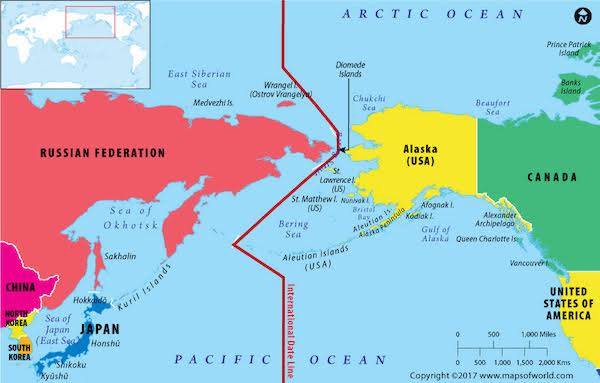It was in the 1850s that a population of once 300,000 sea otters was almost extinct, and Russia needed money after being defeated by France and Britain in the Crimean War. Military experts in Russia worried that if gold was discovered from the push West the British who had moved into Canada would quickly make the jump to Alaska and it would be very difficult for the Russians to defend. And since Russia did not wish to see its archrival being next door just across the Bering Sea they thought they would outfox the situation by selling the land to the much weaker United States. Russia needed the money, trappers and hunters had already taken a lot of the low-hanging fruit, and they didn’t want the British to simply take it from them. So why not sell to the United States who looked as if they would eventually collapse in the midst of a full-blown Civil War?
The Russian government pitched the idea to the United States in 1857 and 1858, however, no deal was reached, as the risk of an American Civil War was a more pressing concern in Washington. Following the Union victory in the Civil War in 1865, the Tsar of Russia instructed his people re-enter into negotiations with the United States. It was in the early-Spring of 1867 that an agreement was finally made with the purchase price set at $7.2 million ($133 million in 2020), or about 2 cents per acre.
The United States acquired a mass amount of land, but it was not until the great Klondike gold strike in 1896 that Alaska generally came to be seen as a valuable addition to American territory. And it wasn’t until 1959 that the territory became known as our 49th state… Alaska. Keep in mind, Alaska is by far the largest U.S. state by area, comprising more total area than the next three largest states Texas, California, and Montana combined.
The purchase of Alaska has since been referenced as a “bargain basement deal” and a huge positive accomplishment of the presidency of Andrew Johnson. Several leaders in Washington had the foresight, vision, and belief that Asia would eventually become an important market for the country’s products, and expected that Alaska would serve as a base for American trade with Asia and globally and for American power in the Pacific.
I always love looking back at history and thinking about how some of the smartest people in the world got a few things very wrong and some got a few things very right. It’s very interesting to consider “perspective” and how everyone is so wildly different on almost every subject. I often think about how a few decisions from Washington, Jefferson, Lincoln or Truman could have easily gone a different way and how much different our world would be… (source: Wiki; History)









